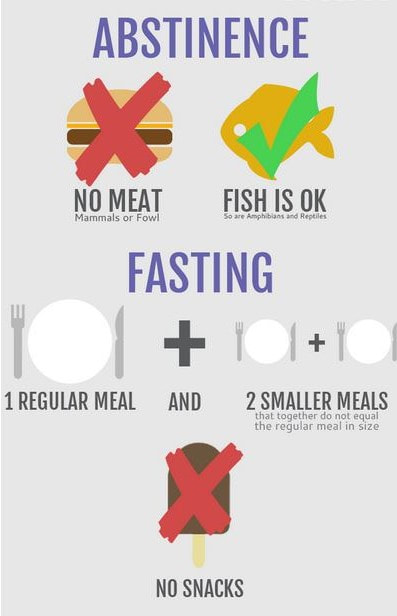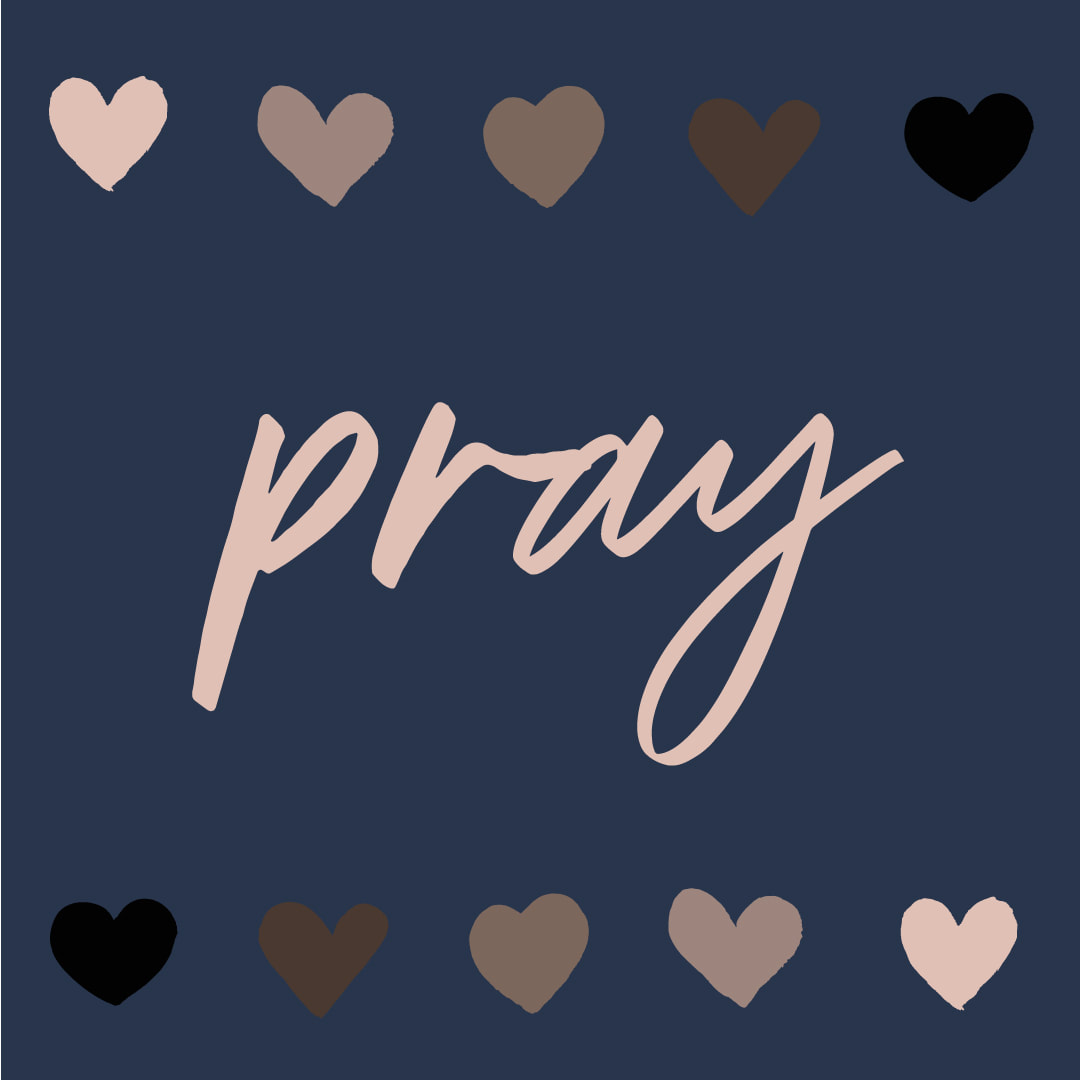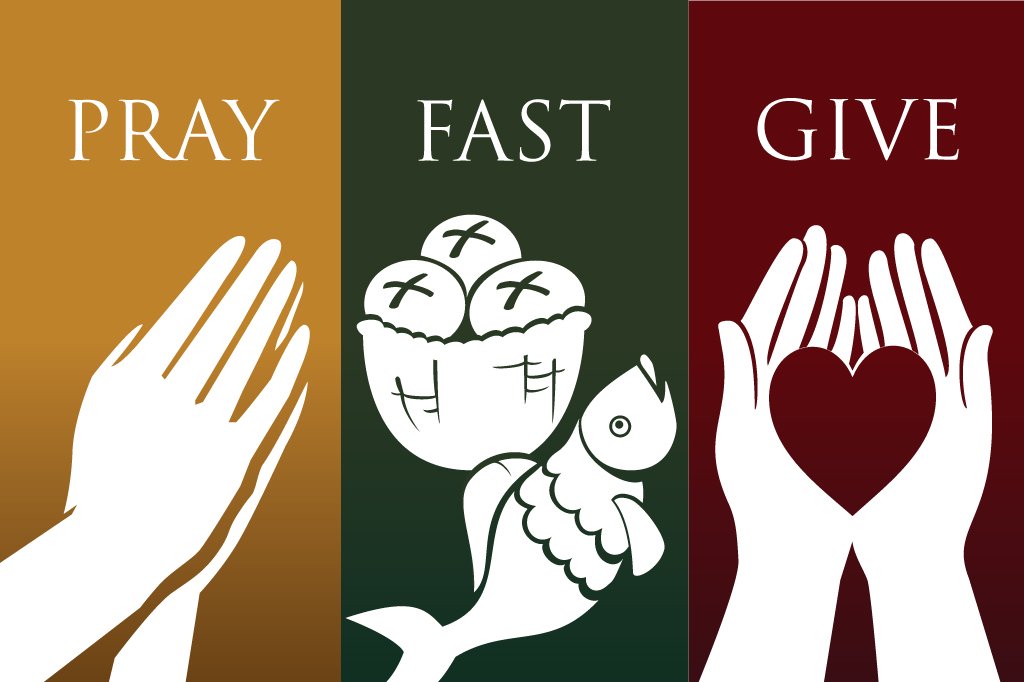|
Lent starts on Wednesday! Time moves so quickly, doesn’t it? That’s why I want to make a post about Lent a few days early. I know when I wake up on a particular Wednesday in February or March and realize, “Today is Ash Wednesday?!” and I haven’t prepared, I always feel behind schedule. I never really feel caught up when I’m not ready for Ash Wednesday, and I never feel my Lent season is experienced well when I’m not ready. I repeated that thought of “not ready,” did you notice that? Lent is a period of preparation. It requires reflection and action. It’s hard for me to follow through if I’m not prepared for my preparing. I know that sounds a bit controlling, but the change I strive for during Lent seems to happen at a better quality when I have the time to prep for it. Let’s take some steps back and look at the bigger picture. How long is Lent? Lent is a period of serious reflection before the joyous celebration of Easter Sunday. Easter Sunday is the day that Jesus rose from the dead: Resurrection Day. If you counted the days between Ash Wednesday and Easter Sunday, you’d count 46 days, yet we are taught that Lent is just 40 days. Why? Because every Sunday is a celebration of Jesus’ Resurrection, so the Sundays between Ash Wednesday and Easter Sunday are not Lenten days. The calendar is … what?! Lent begins on Ash Wednesday and ends on the Wednesday before Holy Thursday. Holy Thursday, Good Friday, and Holy Saturday are called the Triduum (pronounced as 3 syllables: “Trid-do-um”). Holy Thursday commemorates the day Jesus and the 12 Apostles celebrated their Passover meal, followed by time in the Garden of Gethsemane, Jesus’ arrest and trials, and the start of Jesus’ torture. Good Friday remembers Jesus’ torture, judgment, death, and entombment. Holy Saturday is a day of meditation and quiet, as the Blessed Virgin, Apostles, and friends mourned; this is the time Jesus descended to hell to gather those in the Bosom of Abraham and delivered them to Heaven. Easter Sunday commemorates the day that Jesus appeared to His Mother and friends, having risen from death. Mardi Gras is French, and it means Fat Tuesday in English. It is the day before Ash Wednesday. Traditionally, Christians cleaned all indulgent foods from their pantries, which is why it’s called Fat or Gras. In many cultures (Brazilian, Italian, and Creole from New Orleans in Louisiana, USA) developed community celebrations based on this cleaning out; carnivals and parades have become common. Some faith traditions call Mardi Gras Shrove Tuesday. Shrove means to confess your sins. Traditionally, we are called to be introspective and examine ourselves at the start of Lent in order to determine what we need to work on during Lent to bring ourselves into a closer relationship with our Lord. We are invited to spend a substantial amount of time during Lent reflecting God’s holiness and all of the ways we turn away from our call to be holy. It is a time of awareness and promise. By recognizing our sinfulness, we are led to repentance (which is the turning away from sin) and real change. What does this mean for me and my family? What should we do during Lent? The simple answer is this: Stop doing one thing that separates you from God. Choose one sin, especially one that you commit all the time, and focus your energy on just stopping. And this: At the same time, you should start doing something that is guaranteed to bring you closer to God. Choose one holy activity and focus your energy on starting it. Most Catholics adopt the Three Disciplines of Lent, which are fasting, prayer, and almsgiving. Together, these three disciplines help us draw closer to God, which is the true purpose of the Lenten season.
For Catholics, fasting does not mean starving yourself and eating nothing. Fasting means that we eat three very small meals. We eat simple, whole, and humble foods. We drink only water or something with nutrition (broth, pureed soups, milk, etc.). There should be no sugar consumption (no sodas, no desserts, no junk). Remember that you fast only two days a year--you can do this! When we fast, we practice self-denial and learn to lead a life of moderation and generosity. When we learn to not take for ourselves, we deepen our compassion for people who are in need, and that leads us to develop a deeper hunger and thirst for God. Fasting applies to:
About abstinence: The Church asks us to abstain on Ash Wednesday, all Fridays of Lent, and Good Friday. Abstinence means not eating meat, including poultry, pork, beef, and other types of red meat (lamb, veal, buffalo, venison, etc.). Dairy products are discouraged (milk, cheese, yogurt, etc.). On the other hand, fish and seafood is allowed. Fasting and abstaining from meat reminds us of our reliance on God, who is the source of all abundance and nourishment. When my children were preschoolers, I started training them in abstaining from meat and from indulgent foods like treats. Supporting your parish at least once during Lent by going to the Friday Fish Fries makes a fun family tradition. At home, try to keep your seafood dishes simple; we are fasting and abstaining from extravagance, not simply from certain animals. If your family members do not like any kind of fish, legumes (lentils, black beans, white beans, etc.) are a good source of protein, too.
Another prayer habit you could engage during Lent is actually praying for the people you tell on social media, “I’ll pray for you.” Take out a calendar and, on each of the days between Ash Wednesday and Easter Sunday, write the name of one family member, friend, coworker, neighbor, acquaintance, … or even someone you don’t really like. As each day arrives, offer your prayers and petitions, frustrations, joys, and sufferings for that person’s intention. If you wanted, you can tell that person that you are praying for him or her on that day and ask him or her if he or she has any specific intentions he or she wants you to pray for. Knowing their struggles, their hopes, spiritual life, family relations, health, and whatever else brings you into closer communion. A Prayer Table in a prominent place in your home will help highlight that “in this family, we pray.” You can practice the prayers we ask your kids to memorize, or you can start your own prayer devotion there, or you can complete the Family Liturgy there, or you can even have the kids do their Religious Education Program homework in that area—in any case, it signifies a quiet, meditative place. Your prayer table could be an end table or coffee/cocktail table in your living room, a section of your kitchen counter or dining table, or a piece of furniture you buy just for this purpose. You can make this a permanent place in your home, a sacred space that will change with the seasons and with time, as the members of your family grow and change. Basics that should always be on your Prayer Table are
Gather your family around the table on a certain day at a certain time. While lighting the candle, say something like, “We light a candle to remind us that God is with us in this place, at this time.” Some good storybooks for Lent include The Tale of Three Trees, The Donkey that No One Could Ride, and The Colt and the King. You should also choose a good Stations of the Cross book. An electronic format is useful if you come to our parish parking lot and pray the Stations together as a family, outside. Or you can join other parishioners inside (materials will be provided). Times are listed on our parish's homepage. Donate your Money: You had the option of taking the Operation Rice Bowl, sponsored by Catholic Relief Services, the last time you came to classes. You might donate goods or money to Holy Family’s St. Vincent de Paul. If money is tight in your family, you can always buy the supermarket “BOGO” and give your free one away. You might also ask each family member to find three to five high-quality, useful items in their bedrooms, family room, or kitchen that would be appreciated by those who are less fortunate. Donate the items to the Holy Family Thrift Shoppe, GoodWill, or the Salvation Army. After you donate the items, pray together at your prayer table for those who will receive them. Donate your Talent: Become involved in a parish activity that ministers to others. Children and teens can join Altar Servers, Ushers, and Young People’s Choir among other youth ministries. Moms and Dads can always use your talents and time here in the Religious Education Program. We would love to work with you! Do you want to celebrate the different days in the Lenten season? Here are some ideas: Mardi Gras: Clear your pantry. Get rid of foods and beverages that do not honor the body that God designed for you. Instead of gorging on them, consider donating unopened packages and bottles to the St. Vincent de Paul Food Pantry here in our parish. Your body is God’s gift to you. How well are you treating it—with foods and with other choices? How are you abusing your body (your intellect, your physical body, your emotions and your psychology, etc.)? Are you using your body to abuse others (yes, this is a question of morality)? How? These unhealthy choices and habits are also things you want to clear out and get rid of. It’s ok to feast today. Say this grace before your meal. Ash Wednesday: Today is not a Holy Day of Obligation, but many Catholics happily choose to start the Lenten season by going to Mass and then receiving ashes on their foreheads. I feel going to Mass and receiving ashes is important for our children, who respond well to physical expressions and rituals. This resource provides details on the Ash Wednesday tradition. Our Mass schedule is here. St. Patrick's Day (March 17), St. Joseph's Day (March 19), and the Annunciation (March 25): Everyone likes to claim that they are Irish on St. Patrick's Day and Italian on St. Joseph's Day. And why not? It's fun to celebrate these saints and their contributions to our faith Tradition. The secular party, though, might be more than what we should be doing during Lent, even if these days don't fall on a Friday. Go ahead and celebrate, but within reason. Take note, though: if St. Patrick's Day falls on a Friday, you are not permitted to eat meat unless the Bishop gives a dispensation, so check the Diocesan website. But if St. Joseph's Day or the Annunciation falls on a Friday, you may eat meat. What's the difference? Read this article to find out. Can preschoolers celebrate Lent? YES! You probably can see children of all ages being able to participate in some way in all of the activities listed above. Children love to help, and teens want to “give back.” Have a blessed Lent! We are here to support you in your Lenten efforts, so please let us know what you need! Mary Acevedo, Director of Religious Education
0 Comments
Your comment will be posted after it is approved.
Leave a Reply. |
Upcoming Family Events
here in our program, here at our parish, and throughout our Diocese. Categories
All
Archives
April 2024
|
-
Welcome
- About
-
Ministries
>
- Altar Servers
- Black Catholic Ministry
- Dementia and Alzheimer's Caregivers Support
- Extraordinary Ministers of Holy Communion
- Filipino Ministry
- Garden Ministry
- Grief Support
- Lectors
- Men's Club
- ministerio hispano
- Ministers of Hospitality
- Ministry of Mothers Sharing (MOMS)
- Music
- Prayer Groups >
- Religious Articles Store
- Thrift Shoppe
- Organizations >
- New Here?
- The Sacraments
- Making Disciples
- News / Events
- Contact Us
Proudly powered by Weebly





 RSS Feed
RSS Feed